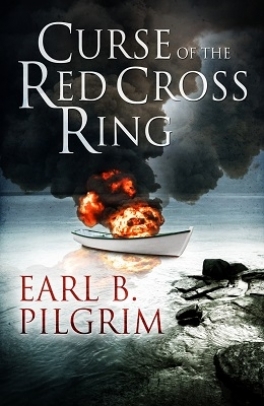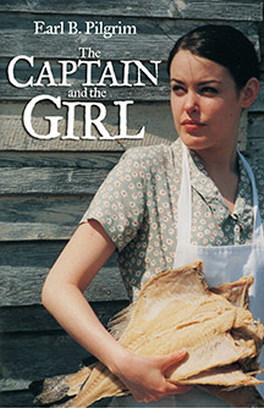Clarissa, eleven, has been orphaned by a disease that has kept her far from home for as long as she can remember. Despite the many inmates in Dr. Grenfell's Children's Home on Newfoundland's northern tip, she lives a lonely life. She longs to be able to do something as simple as pushing her feet into boots in a blink and skipping down the road holding hands with Cora, her best friend.
Will Clarissa get to go home? If so, what will she discover about her past that will help her understand why she spent her childhood at the orphanage? There are times when she is not sure if she wants to go home. What if she doesn't like anyone there? Worse—what if no one likes her?
The story begins in 1924 at St. Anthony, with flashbacks to earlier times. One bright memory is folded in a blue handkerchief, which is given to her by a kind nurse and carried to the end like a security blanket.
Shortlisted for the 2006 Heritage and History Award
“I don’t belong here; I’m not an orphan,” Clarissa murmured as she fidgeted on the damp concrete steps of the Grenfell orphanage. She eyed the other children playing lallick in the grassy field outside the building. Shouts and laughter rose in the still air while she sat silently, her elbows in her lap, the backs of her hands under her chin. I should be used to this by now, she thought, used to what the school ma’am called a heavy solitude that takes over a person’s mind when she cannot do the things she dreams.
Clarissa knew she had been sent to the Grenfell Hospital when she was little, and that Dr. Grenfell had operated on her paralyzed legs. She didn’t know why she was sent from the hospital to the orphanage and kept there for almost as long as she could remember. She brushed aside unsettling thoughts and looked towards tall, skinny Cora playing lallick with abandonment. A magical thing it was that anyone could stand on two feet, lift them and run without toppling over. How heavy her own legs felt; how light everyone else’s looked. Running was something Clarissa knew she would do someday. She clenched her warm, full lips tight with determination.
She picked up the wooden crutches beside her and, grasping the handgrips, leaned against them, her shoulders lifting as the wooden crosspieces slipped under her armpits. She stood up drenched in the glow of this sunny Saturday, one that had slipped away from summer and hidden in the dying leaves of fall, only to jump out like a surprise. She looked towards the bay, its waves rolling gently into St. Anthony Harbour.
A faint sigh of satisfaction rose in Clarissa’s throat when Peter, tagged “bully-boy” by all the orphanage girls, tripped Cora. Her glare met his grin as she got up panting and rubbing her right knee. She plopped down on the fading grass of the orphanage lawn, and Clarissa called hopefully, “Are you ready to go up Tea House Hill?” They had not been up there all summer. The year before, the girls had sneaked up on the hill twice to play cobby house with seashells and chainies of broken dishes they had found along the beach.
Cora’s mother, Mrs. Payne, the orphanage cook, was usually too busy to mind where Cora went. Rules were upheld by Missus Frances, the headmistress, but they were enforced with more vengeance by Miss Elizabeth. Once Clarissa was hooked by the younger mistress’s stern, brown eyes, she felt as if she would slide right off her long, thin nose into the wretchedness of her punishment.
Cora had promised Clarissa that she would go up the hill today, but as soon as the girls came outside after lunch, she skipped off to play lallick. Clarissa sat idling time, tossing a big black marble into the air and catching it on the back of her hand. It was a game she soon wearied of.
“I’m tired now,” Cora said as she stood up and scuffed her way up the steps. She sat down and opened her mouth wide, drawing in the crisp air for a good breath. She rubbed her tongue over a tooth that was turned and facing her cheek.
“You’re tired,” Clarissa said crossly. “I should be tired, having to hobble up and down stairs and hills on wooden legs. I wish I had your perfectly good legs.”
“No — you — wouldn’t,” Cora panted. “Some days they’re too tired; you wouldn’t want my breath either. ’Tis days when it’s heavy and hard to pull up from inside me. You know I’ve been this way ever since I had a bad cold.”
“Let’s forget about what ails us for now.” Clarissa looked around, and then up at the high windows of the brick orphanage which had almost as many eyes as a spider. Her strong, healthy face broke into a wide grin. “There’s no staff in sight, not even Ilish and Georgia. Let’s go.”
Cora shrugged. “We’re eleven, old enough not to have to ask to go outside the gates. Playing games is no fun with bullies like Peter around.” She scowled. “I’d like to trip him good. I will yet, even if Miss Elizabeth and Missus Frances do punish me.”
Clarissa looked towards blond, curly-haired Peter, with his smooth, white face and large, bottle-green eyes. She decided he was nondescript. That was the word Miss Ellis, the school ma’am, used for anything ordinary looking. Now he was flopping his elbows at his sides, his hands pinching and pulling up pants that were always drooping like a rag moll’s. He’s so scrawny, she thought, half a bullet could shoot him into the hereafter. She wondered where he got the energy for his acrobatics: hanging upside down, doing cartwheels, scratching his poll with his toe like someone digging for head lice. She turned to Cora and giggled, “He likes you.”
Cora shuddered as though snails had just crawled into her ears.
Clarissa laughed. “Come on. Let’s go.” She swung herself along on her crutches. Cora pulled open the black wrought-iron gates and grinned as they clanged shut behind the girls. They were on their way up to Tea House Hill, where Clarissa could look out over the sea and beyond its smoky rim, and imagine the place she had come from, the home to which she longed to return.
This book is involving, informative and refreshingly unsentimental regarding children who are often cruel to each other and certainly always merciless towards starfish and sculpins.-- The Telegram --
The whole book is studded with wonderful, fresh, rich words and phrases that stimulate, enrich and enlighten your understanding of life in the 1920s on this island.-- The Northeast Avalon Times --























